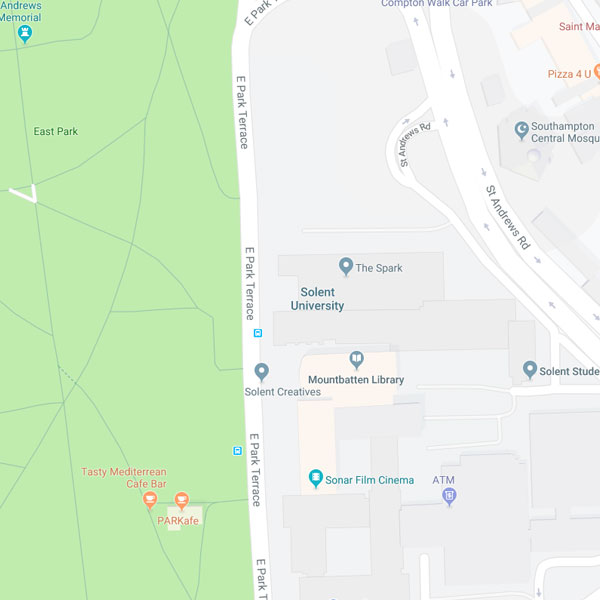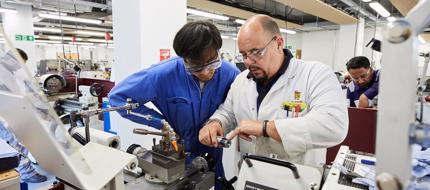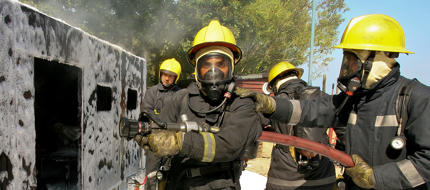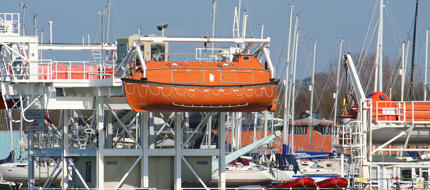About this course
Training as an electro-technical officer (ETO) cadet in the UK’s Merchant Navy will offer you the chance to gain valuable academic and practical electrical engineering knowledge and put your specialist skills into practice while away at sea on a fully sponsored three-year marine electro-technical officer cadet programme at the world-renowned Warsash Maritime School.
Officer cadet training schemes typically last for around three years and are split into five phases which alternate between academic studies, practical experience, and safety training at Warsash Maritime School and seagoing periods to gain practical shipboard experience.
To enrol on an officer cadet training scheme, candidates apply directly to shipping companies, not through UCAS. This is because officer cadet training is fully sponsored by the shipping company, covering course fees and also providing the means for gaining the mandatory work-based learning on board ship. Cadets will often also receive a small salary or living allowance while they are training.
Electro-technical officers take particular responsibility for the maintenance of on board control engineering and electronic systems, including propulsion control, radio communications and electronic navigation aids. During their training, ETO cadets are taught the necessary academic underpinning knowledge, as well as gaining practical training, providing them with the confidence and know how to maintain a wide range of electrical and electronic equipment to maximise the operational safety and efficiency of the vessel.
This programme is aligned to the new UK-wide maritime officer cadetship syllabus developed by the Cadet Training and Modernisation (CT&M) Programme, led by the Maritime and Coastguard Agency (MCA). Effective from September 2025, the new syllabus reflects the current practices and technology used aboard modern vessels and supports the development of 'human element' skills - essential learning for today’s aspiring officers.
What you'll study
Phase 1
- 26 weeks (this is approximate and subject to change)
- Maritime Electrical Machines
- Maritime Mathematics for Engineers
- Maritime Thermodynamics and Mechanics
- Work-based Engineering Operations
- Engineering Workshop Skills
- Basic Safety Training Week (BSTW) (STCW short course)
- Proficiency in Designated Security Duties (STCW short course)
Phase 2
- 28 weeks at sea (sea phase lengths are approximate and are subject to change)
Phase 3
- 22 weeks (this is approximate and subject to change)
- Operational Electrical and Electronic Control Systems
- Operational Marine Engineering Knowledge
- Operational Maritime Law and Project Management
- Operational Naval Architecture and Stability (Engineering)
- Work-based Engineering Project
- Engineering Workshop Skills
- Human Element, Leadership and Management (Operational) (STCW short course)
- High Voltage (Operational) (STCW short course)
Phase 4
- 32 weeks at sea (sea phase lengths are approximate and are subject to change)
Phase 5
- 23 weeks
- Applications of Power Electronics in Electrical Motor Drive Systems
- Distributed Control Systems and High Voltage Systems
- Marine Analogue and Digital Electronic Principles
- Marine Navigation and Radio Communication Systems
- Maritime Electrical and Electronic Control Systems
- Power Electronics and Logic Controllers
- Shipboard Management
- Engineering Workshop Skills
- Proficiency in Medical First Aid (STCW short course)
- Training in Advanced Fire Fighting (STCW short course)
- Proficiency in Survival Craft and Rescue Boats (STCW short course)
- MCA orals preparation
- IAMI Engineering Knowledge
How you'll study
Where you'll study
The classroom teaching and workshop instruction for this course is delivered from Solent University's East Park Terrace campus, located in Southampton city centre. All mandatory STCW maritime safety training courses are delivered from the Warsash campus.

Facilities
How to apply
Entry requirements
54 UCAS tariff points
- A numerate subject or national engineering award at level 3.
- Plus GCSEs at grade 9 to 4 (A* to C) in the following subjects:
- Mathematics (preferably Higher Tier)
- English
- Science (with significant Physical Science content)
All cadetship programmes welcome applications from UK and International applicants as long as they meet the academic and PSRB requirements. Warsash Maritime School welcomes a diverse range of students and the school is committed to delivering a uniform experience to all students.
Medical requirements
Officer cadets must be in good health and capable of passing the Merchant Navy Medical Examination (ENG1).
Anyone contemplating a career as a ship’s officer would be well advised to take a medical examination and sight test as soon as possible to find out if there are any physical bars to their career aspirations.
The MCA holds a list of approved doctors throughout the UK who are able to provide ENG1 seafarer medical examinations. This list can be found here.
Nationality
British shipping companies will normally only recruit UK or European Union nationals. However, the MCA certificates of competency may be awarded to people of any nationality and the training programmes are open to all.
A potential international candidate from outside the UK and EU should secure sponsorship from a suitable shipping company that will be able to provide appropriate sea service as part of the cadetship programme.
International students should also hold a formal International English Language Testing System (IELTS) certificate of at least 5.5, as a good knowledge of written and spoken technical English is required to commence the programme.
Application and sponsorship
To apply for this course, you must undertake a three year engineer officer cadet training programme approved by the Merchant Navy Training Board (MNTB) and meet the academic entry requirements as stated.
The next step is to find a company to sponsor you so you can complete the sea service elements of the training programme. You should apply direct to the sponsoring companies for details of their recruitment policies and the availability of sponsorship.
There are a number of UK sponsoring companies that recruit UK/EU nationals as officer cadets to work in the various shipping sectors of the merchant navy (for example, cargo, container, cruise, tanker etc.), either individual shipping companies recruiting to fulfil their own staffing needs or training organisations that recruit on behalf of their clients.
Companies normally start the recruitment process around January each year for entry in the following September or January.



